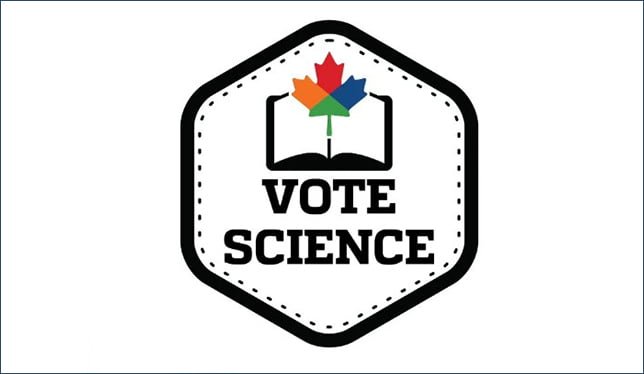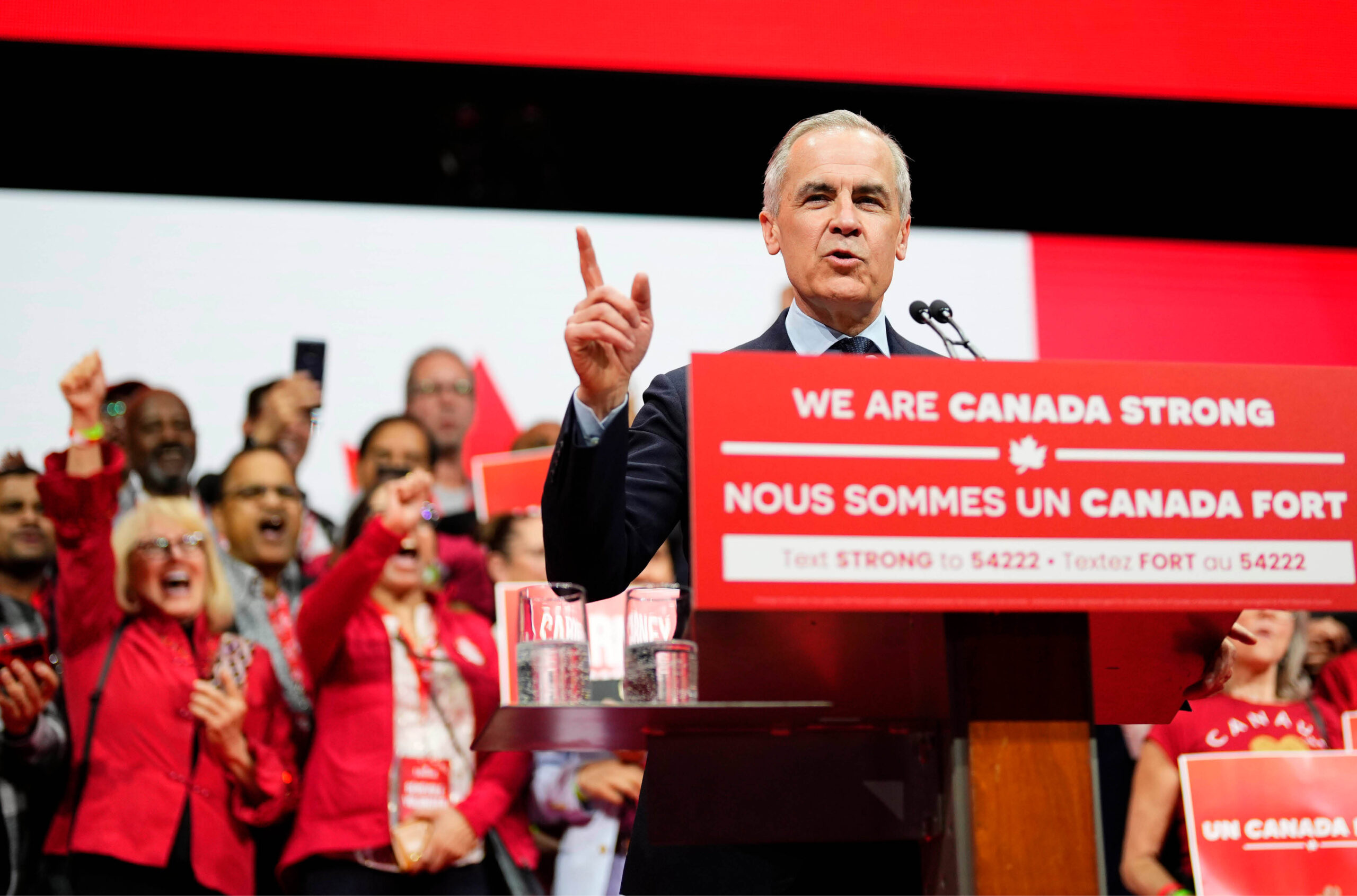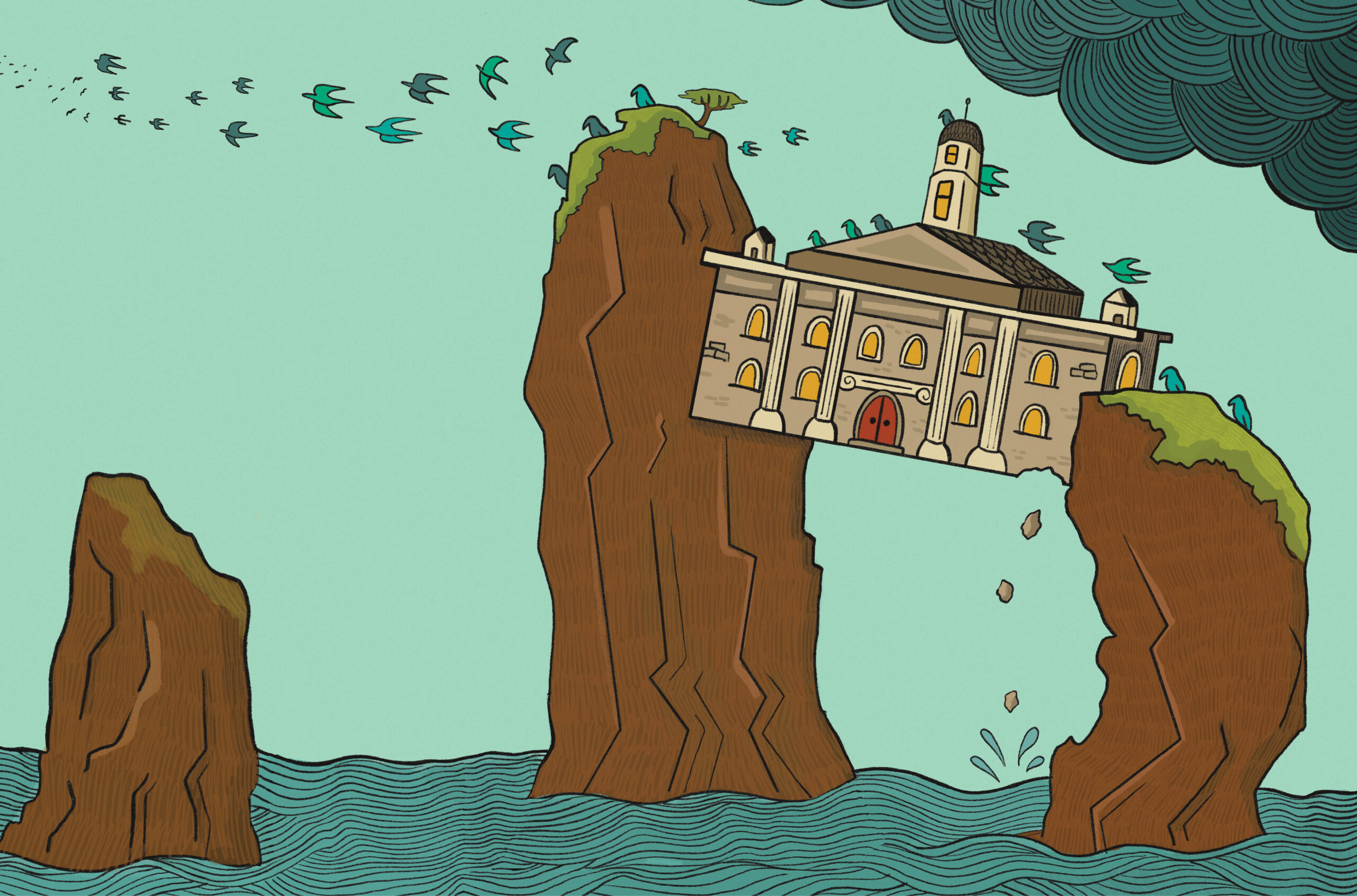This fall, let’s #VoteScience
Science is rarely a key issue during federal elections - and we think this needs to change.

Despite our political differences, all Canadians benefit from our country’s continued success in scientific discovery and progress. Canadian discoveries include pioneering work on pulsed lasers by Nobel Prize laureate Donna Strickland, the advancement of artificial intelligence by Turing Prize winners Yoshua Bengio and Geoffrey Hinton, the preservation of a historical record of Stalinist terrors by Molson Prize laureate Lynne Viola, and the made-in-Canada Ebola vaccine.
Today, countless Canadian scientists continue to work diligently in academic, industrial and government laboratories across the country and abroad, where they build on past discoveries, drive innovation, and further our understanding of ourselves and the world around us. These breakthroughs and life-saving discoveries are only possible in a society which sustainably and fervently supports the funding of scientific research and the next generation of scientists.
It is vital that our elected representatives harness the strength of scientific evidence in decision-making, to ensure that policies are backed by sound and accurate information. Strong science means a healthy public. Strong science means innovation to push all sectors of our economy forward. Strong science means an informed and capable population. And perhaps most urgently, strong science means sustainability – ensuring that we are prepared to address the imminent threat of climate change.
Advocating for science is particularly important in today’s climate of misinformation and polarization, where several prominent politicians have been vocal in their unwillingness to prioritize support for science, and many others do not make full use of the available evidence in decision-making. When scientific advances are ignored and discarded, it is to our peril. Politicians pushing against and ignoring science threaten progress, as well as the future health and stability of our society. Now, more than ever, we need our elected representatives to embrace evidence-informed policies in order to protect previous investments into science, and the future health, prosperity and well-being of Canadians.
That’s why we launched a national, non-partisan #VoteScience campaign – a collective effort to advocate for science in the upcoming federal elections, and to empower Canadians with the tools they need to engage with their local candidates on science issues.
What could voting science mean for Canada?
It can include advocating for evidence-informed policy-making, improved transparency and openness in decision-making, and funding scientific research. While these are some of the issues that we care about in the upcoming election, all of us have many, many reasons – perhaps some personal – to #VoteScience.
At this point, you may be wondering: how can the #VoteScience campaign help you advocate for science, and the issues you care about, in the upcoming federal election?
Using the tools we’ve put together, you can start with small steps. You can use our portal to send a letter directly to your local candidates asking them to make science a key issue in their campaign. You can use our online template to take a #VoteScience selfie, tag your candidates, and highlight why science matters to you! Or, if writing is your forte, consider pitching an op-ed to your local newspaper to share what science issues you care about and why. All of these actions, no matter how small, will help amplify the message that Canadians care about science.
Eager to take greater action? Get in touch with your local candidates! To help you, we’ve put together a free online toolkit on how to engage with election candidates. This may seem daunting, but remember: your candidates want to hear from you. They want to know what issues you care about and will craft their platform and messaging accordingly to get your vote. And, in turn, you want to know where your candidates stand on the issues that affect you, and to decide who you’ll ultimately vote for this October.
Engaging with your candidate can be as simple as keeping our postcard of science policy questions by your front door, so that when your candidate does come knocking in your neighbourhood, you’re ready with questions. Using our toolkit, you can also arrange a one-on-one meeting with your candidate, and even host local debates with candidates. If you’re a scientist, you can go even one step further by inviting candidates to your lab to demonstrate in-person how federal funding for science leads to progress in scientific research. On our end, we’ll be distributing a questionnaire to parties to better understand their positions on science issues, which we’ll share.
So why are we launching the #VoteScience campaign?
We know that the combined voices of science advocates and supporters are powerful. We’ve seen this first-hand when the Canadian research community came together as one to advocate for the implementation of the Fundamental Science Review recommendations, with rallying cries such as #SupportTheReport, #Students4TheReport and #NextGenCanScience. Thanks to a sustained and unified effort by advocates and concerned citizens alike, we saw success with allocation of significant funding supporting science in the 2018 and 2019 federal budgets.
Let’s do it again. By coming together as one voice to #VoteScience, we can show that Canadians do care about science.
Let’s #VoteScience to fund the next set of breakthroughs in health care, to ensure we do our part in developing the green technology that will stave off the worst effects of the climate crisis, to fuel innovation in all sectors, to inform our decision-makers as they reckon with the challenges we face, and to ensure Canada’s success in our complex, ever changing world.
So this fall, from sea to sea, ad mare usque ad mare, let’s #VoteScience.
Farah Qaiser is a graduate student at the University of Toronto and president of the Toronto Science Policy Network. Frank Telfer is a graduate student at the University of Toronto and external communications executive with the Toronto Science Policy Network. Kimberly Girling is the research and policy director at Evidence for Democracy. Bensun Fong is a PhD Candidate at the University of Ottawa. Imogen Coe is a professor at Ryerson University. Tina Gruosso is president of Science & Policy Exchange and a member of the Global Young Academy.
Featured Jobs
- Psychology - Assistant Professor (Speech-Language Pathology)University of Victoria
- Education - (2) Assistant or Associate Professors, Teaching Scholars (Educational Leadership)Western University
- Canada Excellence Research Chair in Computational Social Science, AI, and Democracy (Associate or Full Professor)McGill University
- Business – Lecturer or Assistant Professor, 2-year term (Strategic Management) McMaster University
- Veterinary Medicine - Faculty Position (Large Animal Internal Medicine) University of Saskatchewan















Post a comment
University Affairs moderates all comments according to the following guidelines. If approved, comments generally appear within one business day. We may republish particularly insightful remarks in our print edition or elsewhere.